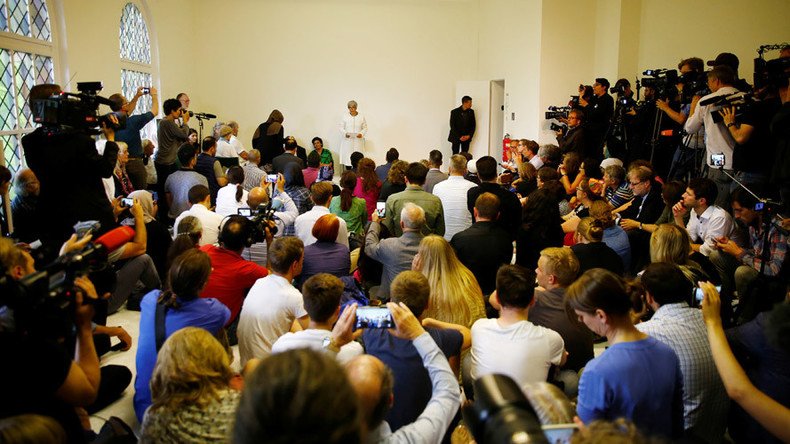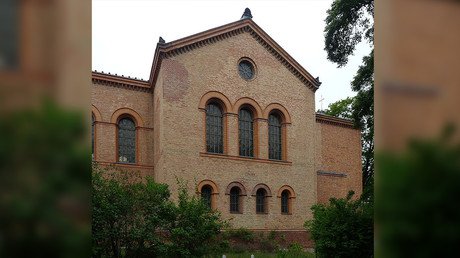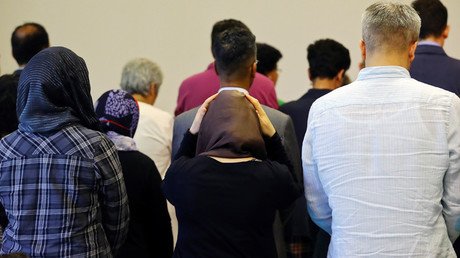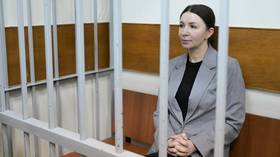‘No matter for state’: Germany rejects Turkish criticism of liberal mosque in Berlin

The German government has hit back at the Turkish Presidency of Religious Affairs (Diyanet) for its criticism of a recently opened liberal mosque which allows men, women and the LGBT community to pray together in Berlin.
"I would like to clearly reject statements that obviously aim to deny the right of people in Germany to the free exercise of their religion and limit their right to freedom of expression of opinion," Martin Schaefer, spokesman for the German Foreign Ministry told journalists Friday.
"How, where, when and in which manner people worship is not a matter for the state," Schaefer said, as cited by AFP. He added that German officials were "very surprised" by the Diyanet’s statements.
"According to our understanding, the state has absolutely no authority over the assessment of theological questions. Rather, it has the duty to protect freedom of religion as well as freedom of opinion or press," Schaefer said.
Schaefer’s words were partly echoed by Tobias Plate, the German Interior Ministry’s spokesman, who said Diyanet’s statement “endangers domestic peace in Germany [and] is something that cannot be accepted.”
Diyanet – the Turkish state institution overseeing various religious issues, including beliefs, worship and ethics of Islam – issued its statement Tuesday, immediately drawing an angry response from Berlin.
The Diyanet statement said the establishment of the liberal mosque in Berlin was aimed at “disrupting Islam's basic sources of information, principles of worship and methodology.”
"We have no doubt that our faithful brothers will act with wisdom and stay away from all kinds of provocations," the statement said, as cited by AP.
The Diyanet then went further and accused the mosque’s founders of following the ideas of the US-based cleric Fethullah Gulen, whom Ankara has accused of masterminding the failed coup attempt in July 2016.
"It is clear that this has been a project carried out for many years by FETO and other ill-gotten structures for the engineering of religion," the religious body’s statement read, referring to the Gulen Movement (FETO), which Ankara considers terrorists.
Meanwhile, Ercan Karakoyun, the head of the Foundation Dialogue and Education, which is considered to be central institution of the Gulen movement in Germany, distanced himself from the project Der Spiegel reported.
However, the Diyanet was not the only religious organization which criticized Germany’s first liberal mosque.
An Egyptian Fatwa Committee, the Dar al-Ifta, also denounced the libertarian mosque, calling it “an attack on Islam.”
“Islam forbids body contact between men and women during the prayers as it violates the foundation of the Islamic law,” Dar al-Ifta said in a statement, as cited by Die Welt. The Egyptian religious authority also said women are not allowed to be imams when men are present in the mosque.
In the meantime, Seyran Ates, a feminist, peace activist and lawyer, who is also one of the mosque founders, told RT that she continues to receive death threats from “haters” but emphasized the intimidation should not stop the fight for people’s values. She also said the threats partly come “from the Islamist side.”
Earlier, thousands of people reacted to Ates’ activities on Facebook, as a DW Arabic report about her garnered more than a million views within just four days and attracted almost 16,000 comments. A large portion of the comments condemned the idea of the mosque.















